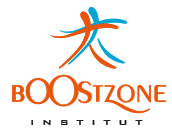I re-read recently a couple of posts by Stowe Boyd, on his notion that « the individual is the new group » (here).
Stowe’s point, as I understand it, is that the important thing for the new social tools is giving people the ability to form the groups they need at the moment they need them (Stowe says this much better and in more detail). This implies that groups (the vast majority of them) are short lived and serve a specific purpose. I think this should also be the case for networks and communities even though their purpose is often more complex and they are therefore longer-lived.
More importantly, I think this kind of thinking greatly illustrates the kind of organization that are emerging today: organizations centered on people. Organizations that give every employee the ability to organize the resources she needs, at the moment she needs them, in order to do her job (think, execute, share, solve problems, …). And today, resources means talent resources, that is fellow employees.
And I think this goes way beyond tools (which are key):
– It means ensuring that employees have the sense of responsibility that is needed to go beyond the existing boundaries of the organization (geography, product, hierarchy, …);
– It means ensuring that the employees that are able to break boundaries in the interest of the business are proprely recognized (I have already talked about how to reinvent assessment and development systems here),
– It means ensuring that employees have the skills and behaviors needed to be able to work in different environments (we call these collaborative models), hierarchical, community of practice, peer network, functional network, …
– It also means ensuring that leadership at organizations recognizes the potential of these new ways of working and of organizing and that they go the whole way they need to go to adapt their own individual and leadership styles.



This is an important point often neglected, most community and networks in real life are « ephemeral », like a project, a holyday group, a debate group on a forum etc.
The implications are many, lets outline two, one for softwares and one for individuals.
For softwares, to be centered on defined communities and groups as if they were lasting is a big mistake creating rigidities and de facto reluctance to use.
For individuals thinking that one can live without mastering a lot of softwares is also a big mistake since the groups we decide to join might be on very different plaforms and that, like it or not, one has therefore to adjust to the platform used by a given group rather than dreaming that groups will adjust to one’s preferred platform.
I am personnally using currently about 10 different platforms depending on the groups I am working with. I hate it but this is exactly the practical meaning of groups for my professional life as well as for my personal life and in a way I want it to be this way because what is important for me are the more or less ephemeral communities I work with, not the platform they use.
Yes I think learning to jump from one working environment to another is going to become a key skill for the years to come
Let’s not forget that more often than not, very successful professional do so in a very well defined professional environment: managers, investment bankers, consultants, … often reach their contribution peak in a precise setting (bank or consulting firm for instance)
So the revolution in personal usages and skills is deep